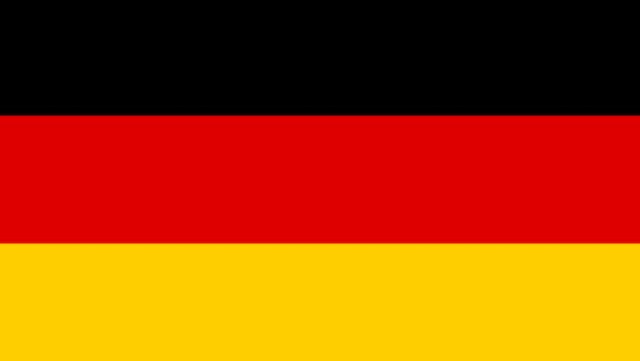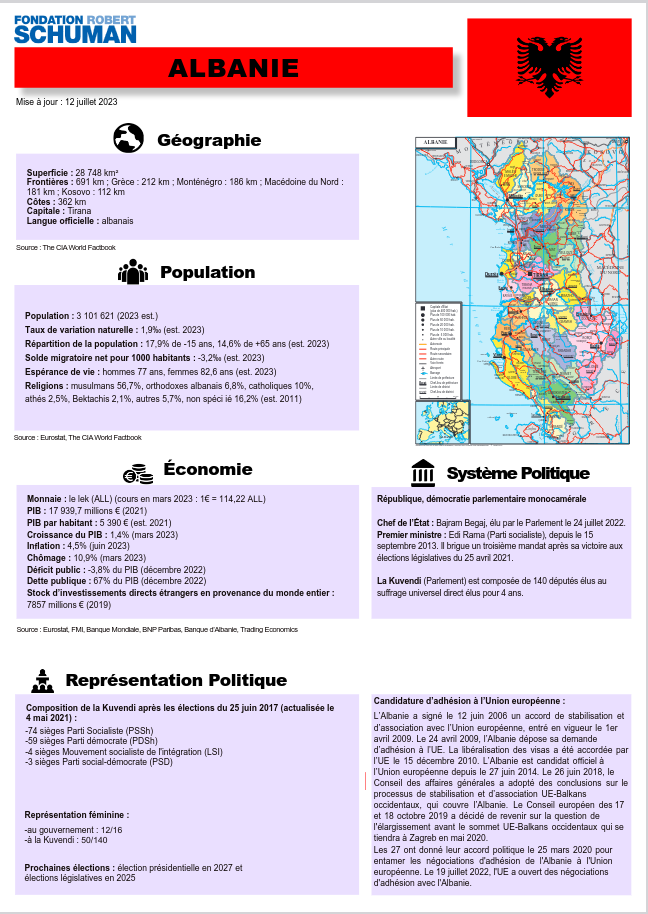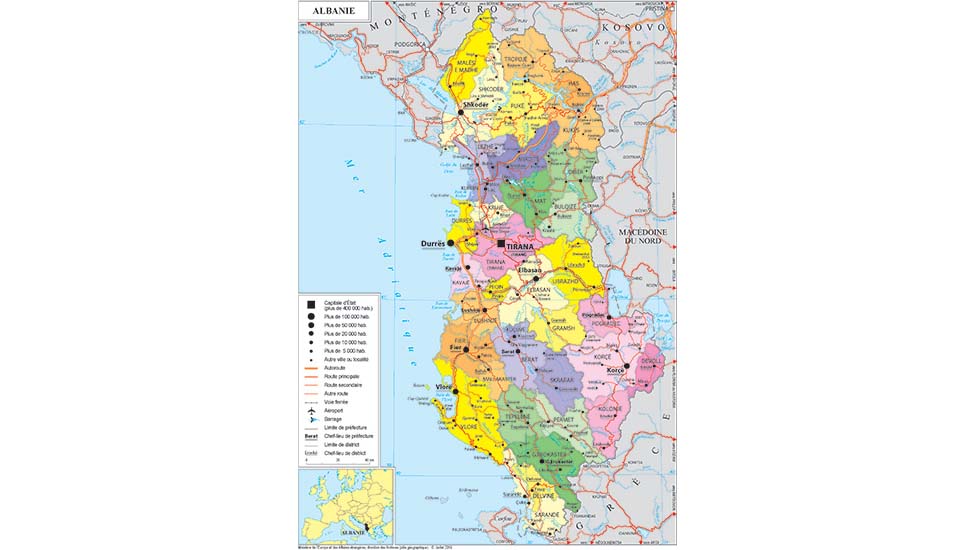
Geography
Area : 28,748 km²
Borders : 691 km (Greece 212 km, North Macedonia 181 km, Montenegro 186 km, Kosovo 112 km)
Coastline : 362 km (Adriatic See)
Capital : Tirana
Official language : Albanian
Source : The CIA World Factbook
Flag
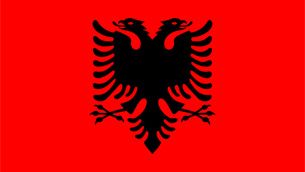
Population
Population : 2,761,785 (2023 est.)
Crude natural change rate : 0.2‰ (2022)
Population repartition: 17.9% under 15 years old, 14.6% over 65 years old (2023 est.)
Crude net migration rate: -3.2‰ (2022 est.)
Life expectancy: men 77 years, women 83 years (2023 est.)
Religions: Muslim 56.7%, Albanian Orthodox 6.8%, Roman Catholic 10%, Atheists 2.5%, Bektashi 2.1%, Others 5.7%, Non-specified 16.5% (2011 est.)
Source : Eurostat, The CIA World Factbook
Economy
Currency: Lek (ALL) (exchange rate in November 2023: 1€ = 102.43 ALL)
GDP: € 21,255.4 million (2023)
GDP per capita (PPS): € 5,390 (2022)
GDP growth : 0.4% (June 2023)
Inflation: 2.5% (May 2024)
Public debt: 67% of GDP (December 2022)
Unemployment: 10.7% (July 2023)
Public deficit: -3.8% of GDP (December 2022)
Source : IMF, Eurostat, World Bank, BNP Paribas, Bank of Albania, Trading Economics, World Bank
Political system
Republic, monocameral parliamentary democracy
Head of State Bajram Begaj, elected by the Parliament on July 24th 2022.
Prime Minister Edi Rama, since the 15th September 2013. He was reelected on 25th April 2021. The Kuvendi is made up of 140 deputies who are elected via direct universal suffrage for four years
Political representation
Parliamentary composition (July 2024)
- 75 seats Socialist Party (PSSh)
- 44 seats Democratic Party of Albania (PDSh)
- 7 seats Democracy and Integrity
- 7 seats Alliance for Change
- 3 seats Freedom Party (PL)
- 3 seats Social Democratic Party of Albania (PSD)
- 1 seat Opportunity Party (PM)
Application for membership of the European Union:
- Albania signed a Stabilization and Association agreement (ASA) with the European Union on 12th June 2006; it entered into force on 1st April 2009. On 24th April 2009, Albania submitted its application for EU membership. A visa facilitation agreement with the EU entered into force in January 2008, and in December 2010, a visa free regime for Schengen area was introduced. Albania is an official candidate to the European Union since 27th June 2014. On 26th June 2018 the General Affairs Council adopted conclusions regarding the EU-Western Balkans stabilisation and association process, covering Albania. On 17th and 18th October 2019, the European Council decided to come back to the issue of enlargement before the EU-Western Balkans summit in Zagreb in May 2020. On 25th March 2020, the member states of the European Union gave their agreement to start the negociations to integrate Albania into the Union. On 19th July 2022, the EU opened enlargement negotiations with Albania.
Women's representations
- in government: 13/16
- in Parliament: 50/140
Next Elections:
On The Same Theme
Country Sheet
Country Sheet
Country Sheet
Country Sheet
Country Sheet
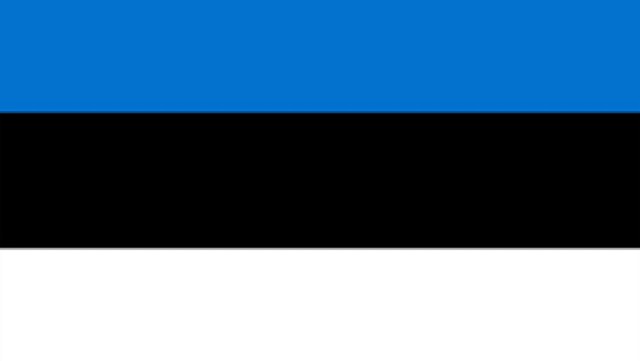
Country Sheet
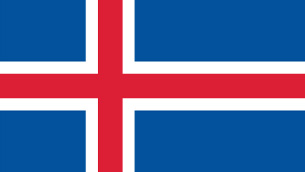
Country Sheet
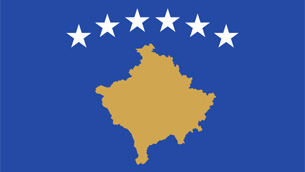
Country Sheet
